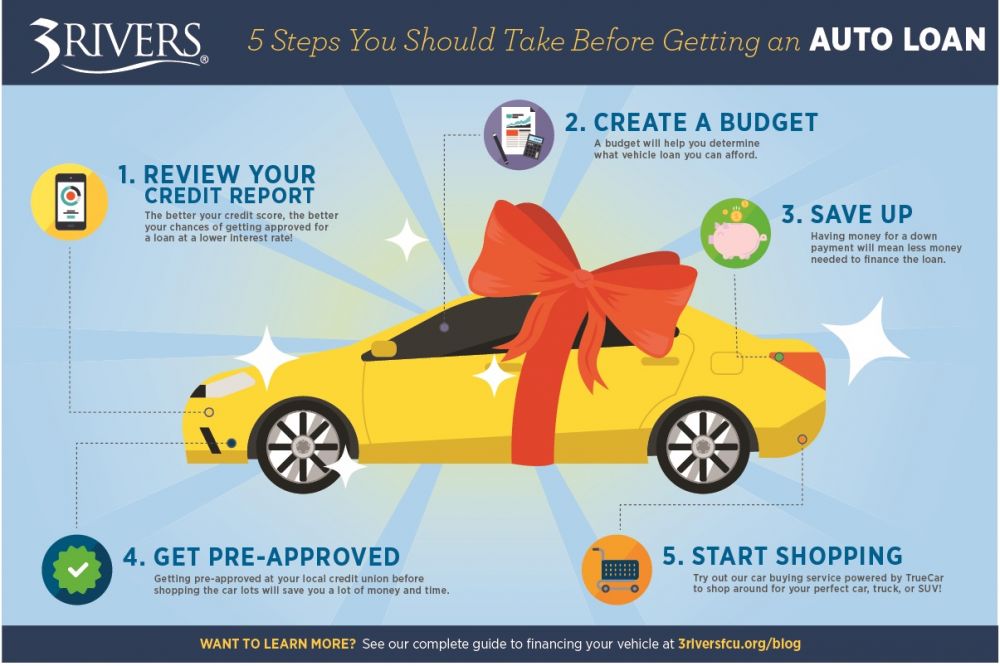How to Apply for a Car Loan
To apply for a car loan, gather your financial documents and select a lender. Fill out the application form with personal and financial details.
Securing a car loan requires a clear understanding of your financial health and the options available to you. Start by evaluating your credit score, as this will influence the terms and interest rates lenders might offer. You’ll need to prepare necessary documentation, such as proof of income, employment, and residence.
Researching lenders is a crucial step; compare rates and terms from banks, credit unions, and online financing companies to find the best deal. Once you decide on a lender, complete their specific loan application process, which typically involves submitting your documents and undergoing a credit check. Remember to read the fine print and understand all the terms before signing any agreement, ensuring a responsible borrowing experience. With the right preparation, obtaining a car loan can be a smooth and straightforward path to owning your dream vehicle.
Preparing Your Financials Before Applying For A Car Loan
Understanding your finances is crucial before stepping into a car dealership. This preparation can save time and enhance your chances of loan approval. Let’s dive deep into the essential steps to get your financials in order.
Checking Your Credit Score
Your credit score is a key factor in loan approval. Know where you stand before lenders do. Obtain your credit report from major credit bureaus.
- Check for errors that might hurt your score
- Dispute any discrepancies immediately
- Improve your score by paying down debt if necessary
Calculating Your Budget And Affordability
Know how much you can spend without straining your finances. Use this simple table to outline your budget:
| Income Source | Monthly Amount |
|---|---|
| Job Salary | $XXXX |
| Other Income | $XXXX |
| Total Income | $XXXX |
| Monthly Expenses | $XXXX |
| Remaining for Car Payment | $XXXX |
- Assess all income streams
- List monthly expenses
- Subtract expenses from income to find available funds
Remember, your car payment should not exceed 15-20% of your take-home pay.
Understanding Different Types Of Car Loans
Welcome to our essential guide on car loans. Understanding the different types of car loans is a stepping stone to secure the best financing for your new vehicle. Before diving into the application process, it’s imperative to comprehend the loan options available to you. Let’s explore the distinctions between secured and unsecured loans, as well as fixed-rate versus variable-rate loans.
Secured Vs. Unsecured Loans
Knowing the difference between secured and unsecured loans is crucial. Secured loans are backed by collateral. This means you provide an asset, like your car, to secure the loan. If you cannot make payments, the lender may take your car. On the other side, unsecured loans do not require collateral. These are riskier for lenders, often leading to higher interest rates.
- Secured Loans
- Require collateral
- Possibly lower interest rates
- Lender may seize asset if you default
- Unsecured Loans
- No collateral required
- Higher interest rates
- Based mainly on creditworthiness
Fixed-rate Vs. Variable-rate Loans
Loan interest rates come in two main types: fixed and variable. With fixed-rate loans, you pay the same interest rate throughout the loan term. This makes it easy to budget, as your payments remain constant. Variable-rate loans have interest rates that can change over time. Rates can go up or down based on market conditions, which means your payments can vary.
| Type of Rate | Features | Pros | Cons |
|---|---|---|---|
| Fixed-Rate | Constant interest rate |
|
|
| Variable-Rate | Fluctuating interest rate |
|
|
Analyze your financial stability before deciding on a loan type. Stable income may make a fixed-rate more appealing. A variable-rate may suit you if you anticipate a future income increase. Make sure to consider your ability to handle possible rate increases with variable loans.
Choosing The Right Lender For Your Car Loan
Securing finance for a new vehicle is a major step. The choice of lender can influence everything from the loan terms to the interest rates. Let’s explore how to select the right lender for a car loan.
Comparing Banks, Credit Unions, And Online Lenders
Options abound when it comes to financing a car. Banks offer reliability and comprehensive services. Credit unions are customer-centric, often providing lower interest rates for their members. Online lenders bring convenience and fast approvals right to your fingertips. Below is a comparison table:
| Lender Type | Pros | Cons |
|---|---|---|
| Banks |
|
|
| Credit Unions |
|
|
| Online Lenders |
|
|
Reading Reviews And Checking Lender Reputation
Before making a decision, reading reviews is crucial. Look for customer feedback on various platforms to gauge satisfaction levels.
- Search for lenders on review websites.
- Read testimonials on the lenders’ own sites.
- Check their Better Business Bureau (BBB) rating.
A lender’s reputation can significantly impact your experience. Ensure they are known for good customer service and fair dealing. Trustworthy lenders secure trust through transparent practices and consistent support.
.jpg)
Credit: www.axisbank.com
Gathering Necessary Documents
Before you sprint towards your dream car, you need the right paperwork. In this essential step, gathering the necessary documents for a car loan application is like assembling the pieces of a puzzle. Each document is a critical piece that completes the picture. Let’s dive into what you’ll need to ensure a smooth application process.
Income Verification And Employment History
Proving your income secures trust with lenders. It shows you can keep up with payments.
- Recent pay stubs – Generally, lenders ask for pay stubs from the last month.
- Tax returns – These are crucial, especially if you’re self-employed. They typically want to see the past two years.
- Bank statements – These can show income and spending habits. Lenders may request the last two to three months.
For consistent employment, bring documents that chronicle your work history. Consider these:
- Employment letters – A letter from your employer can affirm your job stability.
- Job offer – If you’ve recently accepted a new position, an offer letter might be necessary.
Proof Of Residency And Identity
Lenders need to know you’re a real person with a real address. It’s about confirming identity and making sure they can find you.
| Proof of Residency | Proof of Identity |
|---|---|
|
|
Keep digital and physical copies on hand. This ensures you’re ready to move forward when the lender asks.
Navigating The Application Process
Applying for a car loan can feel overwhelming. Yet, it’s easier with clear steps in mind. Starting with the application is simple. Follow these guidelines for a smooth process. Key information ensures you meet lender requirements. Let’s explore these crucial stages together.
Understanding The Terms And Conditions
Before signing any documents, grasp what the loan entails. Learn about interest rates, repayment period, and total cost. Read the fine print. Missed details lead to surprise fees or penalties. An informed decision protects your financial well-being.
- APR (Annual Percentage Rate): This is the cost of your credit as a yearly rate.
- Loan Term: How long you have to repay the loan.
- Monthly Payment: What you pay each month.
Negotiating Loan Offers And Interest Rates
Armed with knowledge, you can negotiate. Shop around for the best deals. Obtain quotes from multiple lenders. Compare these offers side by side. A table format works well for this:
| Lender | APR | Loan Term | Monthly Payment | Total Cost |
|---|---|---|---|---|
| Lender A | 4.5% | 60 months | $300 | $18,000 |
| Lender B | 4.0% | 60 months | $280 | $16,800 |
Spot the best deal. A lower APR means lower total costs over time. Don’t be afraid to negotiate terms with lenders. Your credit score gives you power. Use it to secure favorable rates. Remember, negotiating can save you money.

Credit: m.youtube.com
Final Steps After Loan Approval
Congratulations on your car loan approval! Before you hit the road in your new vehicle, there are a few important steps to take. These will ensure your loan process is smooth and avoids any bumps down the road. So buckle up and let’s tackle these final checkpoints together.
Vehicle Insurance Requirements
Insurance is a must before you drive your new car. Lenders require it to protect their investment. First, find out the minimum coverage needed. Your lender will give you these details. Next, shop around for the best insurance rates. Insurance companies vary, so compare quotes for the best deal. Once you pick a policy, provide proof of insurance to your lender. They’ll need this before you can complete the car purchase.
Setting Up Automatic Payments
Making payments should be hassle-free. Auto payments save you from late fees. Set this up with your lender. They will guide you through the process. You’ll need your bank account or card details read. Also, pick a payment date that works best for you. Align it with your paycheck to ensure sufficient funds. This setup means one less thing to worry about each month.
Staying On Top Of The Loan
- Keep all loan papers in one place. You might need them for reference.
- Check your loan balance regularly. Use your lender’s app or customer portal.
- Extra payments reduce interest. Consider this if your budget allows.
- Contact your lender immediately if you struggle with payments. They can help.

Credit: roadloans.com
Frequently Asked Questions On How To Apply For A Car Loan
What Are The Requirements For A Car Loan?
Securing a car loan typically requires proof of income, credit check, and a valid driver’s license. Lenders also assess your debt-to-income ratio. A down payment is often beneficial but not always compulsory, depending on the lender’s criteria.
How Does Credit Score Affect Car Loan Approval?
A strong credit score often leads to better loan terms, including lower interest rates and more favorable repayment options. Conversely, a lower credit score might necessitate a higher interest rate or a larger down payment to secure the loan.
What Is The Car Loan Application Process?
The car loan application process commonly involves submitting personal and financial information to a lender, which may include banks, credit unions, or online lenders. They will then review your eligibility, offer loan terms, and may require vehicle information if you’re approved.
Can I Get A Car Loan With Bad Credit?
Yes, it is possible to obtain a car loan with bad credit. However, you may face higher interest rates and potentially need a larger down payment. Some lenders specialize in bad credit car loans, but always compare terms to ensure you receive the best deal possible.
Conclusion
Securing a car loan can seem daunting, but it’s achievable with the right preparation. Remember to review your credit, compare lenders, and understand the terms. By following the steps outlined, you’re steering toward a smooth financial journey. Embark on the road to your new vehicle with confidence—your dream car awaits!





